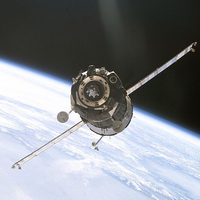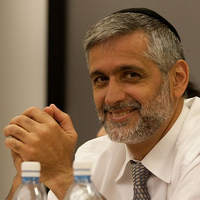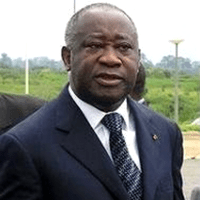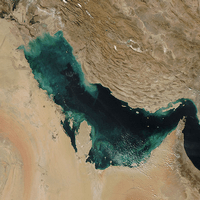To follow up on my WPR column from Friday, at the last minute, several of the countries that earlier in the week had signaled they would boycott the Nobel Peace Prize ceremony for Liu Xiaobo reversed their positions before the start of the ceremony. Serbia found itself caught between its close relations with China — which has steadfastly supported Belgrade’s position on Kosovo — and its desire to pursue integration with the European Union. Serbia’s initial decision to honor the Chinese demarche was not welcomed by the European Union, and this past Thursday, in Belgrade, EU Enlargement Commisioner Stefan Fule, […]
Latest Archive
Free Newsletter

CANCÚN, Mexico — One thing is certain about the COP 16 climate talks in Cancún, Mexico: The summit was not the disaster of last year’s affair in Copenhagen. Though binding agreements were never on the table, even critical observers such as Global Witness, the World Wildlife Fund (WWF) and Greenpeace expressed measured optimism as the conference came to a close at 4 a.m. Saturday morning. “We hope countries can go back from [Cancún] with momentum to take national action, and with a sense of renewed purpose,” said Tara Rao of WWF. Rao nevertheless cautioned that the final agreement was far […]

The decision by FIFA, soccer’s world governing body, to award the 2022 World Cup to Qatar was momentous on many levels, but historic on one key score: Never before has a global sporting event of such stature been awarded to a country so clearly stuck in a “bad neighborhood” like the Persian Gulf, where the potential for large-scale regional war between now and 2022 is far from theoretical. FIFA’s decision was bold alright, but it also signals the international community’s growing faith in what Gulf Cooperation Council countries like Qatar have achieved in promoting economic and network connectivity with the […]

While much has been said about the overall merits of the New START agreement, comparatively little attention has focused on the treaty’s Article 10. This relatively short but telling passage borrows decades-old language reinforcing both the United States’ and Russia’s mutual obligations regarding “national technical means” (NTM) of treaty monitoring and verification — diplomatic speak for spy satellites. Article 10 obligates both parties to use NTM in accordance with the principles of international law, to refrain from concealment measures intended to impede NTM verification of compliance, and, most importantly, not to interfere with each other’s NTM. The nod to NTM […]

Dilma Rousseff won Brazil’s recent presidential elections handily, benefitting from both the enthusiastic backing of the enormously popular incumbent, Luiz Inácio Lula da Silva, and from the mobilization of historically disadvantaged voters excited by identification with a woman candidate. Despite some nasty exchanges with her second-round opponent, José Serra of the Social Democratic Party, the campaign was characterized by the lack of a clear programmatic separation between the two candidates. Although markets moderately preferred Serra, a casual observer might be excused for failing to see much daylight between the two. The fact that the two leading candidates for office differed […]
U.S. Secretary of State Hillary Rodham Clinton speaks at the Brookings Institution’s Saban Center for Middle East Policy Seventh Annual Forum in Washington, D.C., on December 10, 2010.
Egypt recently opened a consulate in Erbil, making it the first Arab country with diplomatic representation in Iraqi Kurdistan. In an e-mail interview, Michael Wahid Hanna, a fellow and program officer at the Century Foundation, discussed Egypt-Iraq relations. WPR: Historically, how would you characterize bilateral relations between Egypt and Iraq? Michael Wahid Hanna: Following a rupture over Anwar Sadat’s overture to Israel in 1977, bilateral ties between Egypt and Iraq improved due to Egyptian support for Iraq in its protracted war with Iran. But relations were dealt a subsequent blow by Egypt’s decision to take a military role in the […]

On the stage in Oslo City Hall today, there will be an empty chair for the winner of the Nobel Peace Prize, Liu Xiaobo. The United States government, which will be represented at the ceremony by its ambassador to Norway, Barry White, criticized China’s refusal to release the imprisoned Liu in order to attend the ceremony. The House of Representatives also passed a resolution calling for the dissident to be freed, while the Obama administration made its position clear in no uncertain terms: We think the Nobel committee has made a strong statement, and we will associate ourselves with that […]

XI’AN, China — While often portrayed as a major international cyber-security villain, the Chinese state is also facing its own grave online security problems. Despite having one of the most restricted internets in the world, it has generally struggled to develop coherent or effective policy responses to these threats. Recent developments suggest China may be attempting to modernize and legitimize its cyber-security apparatus. This represents a significant opportunity for foreign governments to revisit their perceptions of the country’s cyber intentions and engage with Beijing on a major transnational security and intelligence issue. To do so, it is first necessary to […]

The foreign firefighters have received their commendations, packed their bags, and headed home after helping to extinguish the worst forest fire in Israeli history. But now that the flames of the Carmel forest have been consigned to the crowded recesses of the nation’s most-painful memories, now that relatives of the 42 people killed in the inferno have buried their loved ones, a new firestorm — this one a political conflagration — is beginning to rage in Israel. All major natural disasters bring political consequences, and every politician wants to avoid being blamed for them. But sometimes even the most media-savvy […]

The recent revelation that a computer worm called Stuxnet had caused disruption to the Iranian nuclear program has raised concerns about the unintended consequences of so-called cyber war. It has also caught the attention of nation states and others as Stuxnet has proven to be a truly disruptive cyber weapon. We have witnessed the true dawn of cyber war. Noted cyber security specialist Bruce Schneier recently wrote that cyber arms “agreements are badly needed” and that it is “not too late to reverse the cyber arms race currently under way.” Schneier is not alone in this call. For several years […]
A Kenyan appeals court recently ordered the release of nine suspected pirates, ruling that Kenya lacks jurisdiction over events that did not occur within the country’s territorial waters. In an e-mail interview, Eugene Kontorovich, associate professor of law at Northwestern University, discussed the international legal regime for Somali pirates. WPR: What legal regime, if any, applies to captured Somali pirates? Eugene Kontorovich: Captured Somali pirates are tried under the laws of whichever country prosecutes them, which, as in the case of Kenya, may not be the country that captures them. International law allows a nation to try pirates that it […]

Côte d’Ivoire’s President Laurent Gbagbo used a prescient campaign slogan in the run-up to the country’s Nov. 28 presidential run-off election: “We win, or we win.” Despite regional and international recognition of Alassane Dramane Ouattara as the winner of the poll, Gbagbo wrapped himself in the Ivorian tricolor for an inauguration ceremony on Dec. 4, warning darkly against any threat to Ivorian sovereignty. The move followed a decision by the country’s Constitutional Court, stacked with Gbagbo cronies and acolytes, to void the Independent Electoral Commission’s results giving Ouattara 54 percent of the votes, saying that the commission’s delay in announcing […]

This weekend, Saudi Arabia will gather Gulf Cooperation Council (GCC) countries and other Middle Eastern states to collaborate on fighting the spread of weapons of mass destruction to terrorist organizations. The Saudi initiative reaffirms that regional cooperation is an emerging and powerful facet of international politics, and that regional organizations are a proven force against international security threats. This is not just hyperbole; there is ample evidence worldwide to back it up. Regional teamwork is best illustrated by the progress made in Europe, where the European Union synchronizes policies and resources to combat security threats worldwide. The regional approach to […]

With U.S. defense spending cuts potentially on the agenda, U.S. policymakers would do well to use the United Kingdom’s experience as a cautionary example. The buildup to the recent defense cuts in the United Kingdom served as a call to battle for the U.K.’s military services. Anticipating steep reductions in funding, each of the three branches opened fire on their sister-organizations in the hope of redirecting budgetary knives. This development was neither surprising nor unintended. Civilian policymakers have long understood that they can benefit from inter-service conflict. When services attack one another, it provides fodder for cost-conscious budget-cutters to kill […]
I’ve had this thought taking shape ever since Kenneth Weisbrode discussed the different U.S. approach to Asia and Europe in his WPR Briefing from last month. Here’s the relevant passages from Weisbrode’s piece: In much of Europe and America, nationalism remains a taboo subject. Elsewhere it does not. As a result, we have one world committed to erasing the legacy of nationalistic rivalry with institutional cooperation, and another that entertains such institutions only insofar as they advance national interests vis-à-vis rivals. . . . Thus, Obama’s tour of Asia was touted as a goodwill visit to rising world powers, while […]
